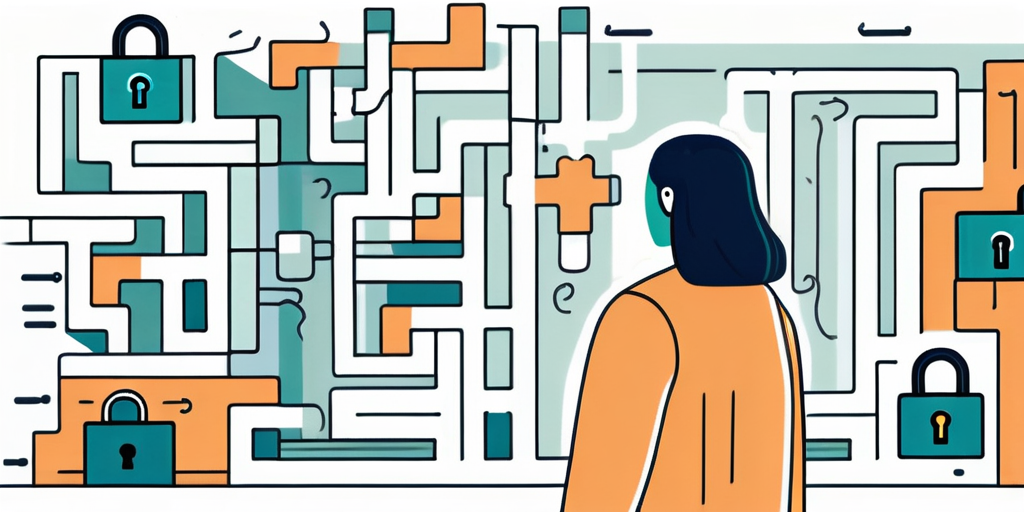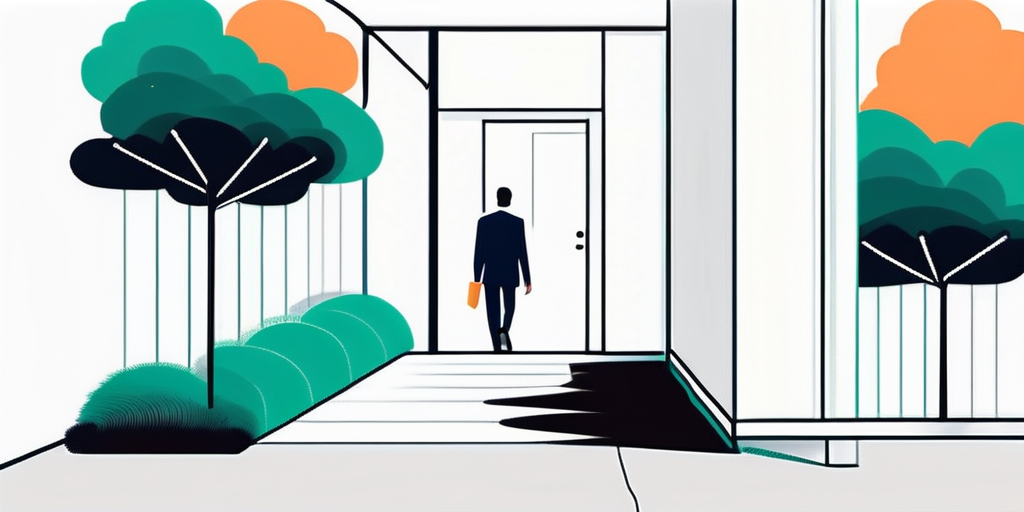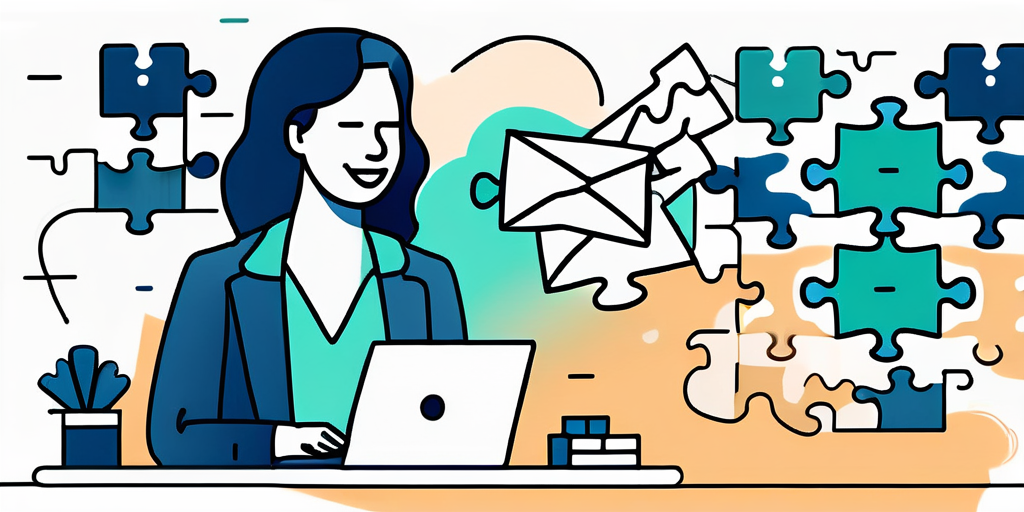
Microsoft is one of the most prestigious technology companies in the world, and securing a job at Microsoft is a dream for many aspiring tech professionals. The Microsoft interview process is renowned for its rigor and thoroughness, but with the right preparation and mindset, you can crack the Microsoft interview and land your dream job. In this article, we will explore the various stages of the Microsoft interview process, provide tips for preparing for the interview, share advice for the interview day itself, discuss post-interview follow-up, and highlight common mistakes to avoid.
Understanding the Microsoft Interview Process
Before diving into the preparation phase, it’s crucial to understand the various stages of the Microsoft interview process. This will give you a clear roadmap of what to expect and how to navigate through each step.
At Microsoft, the interview process is carefully designed to evaluate candidates thoroughly and ensure they possess the necessary skills and qualities to excel in the company. The process consists of several stages, each serving a specific purpose in assessing a candidate’s suitability for the role.
The Initial Screening
The first stage of the Microsoft interview process typically involves an initial screening. This may be conducted over the phone or via video conference. During this stage, you can expect to be asked about your background, experience, and technical skills. It’s essential to highlight your relevant qualifications and demonstrate enthusiasm for the role and the company.
The initial screening serves as an opportunity for the hiring team to get a sense of your overall fit for the position. They will assess your communication skills, your ability to articulate your experiences, and your passion for technology. It’s important to come prepared with specific examples that showcase your accomplishments and demonstrate your potential to contribute to Microsoft’s success.
The Technical Interviews
The technical interviews are the heart of the Microsoft interview process. These interviews are designed to assess your technical skills, problem-solving abilities, and how well you can apply your knowledge to real-world scenarios. Be prepared to go deep into technical concepts and algorithms. Practice coding exercises and review data structures and algorithms to ensure you are well-prepared for this stage.
During the technical interviews, you may be presented with coding challenges or asked to solve complex problems. The interviewers will evaluate your ability to think critically, approach problems logically, and communicate your thought process effectively. It’s crucial to showcase your technical expertise while also demonstrating your ability to collaborate and work well within a team.
The Final Interview
In the final interview, you will have the opportunity to showcase your fit for Microsoft’s culture and values. This interview may involve meeting with senior leaders or potential team members. Be prepared to discuss your past experiences, leadership qualities, and how you align with Microsoft’s mission.
The final interview is a chance for Microsoft to assess your cultural fit within the organization. They will evaluate your alignment with the company’s values, your ability to adapt to a fast-paced and innovative environment, and your potential to contribute to the company’s growth. It’s important to come prepared with examples that highlight your leadership skills, your ability to collaborate, and your passion for Microsoft’s mission.
By understanding the various stages of the Microsoft interview process, you can better prepare yourself for each step and increase your chances of success. Remember to showcase your technical skills, problem-solving abilities, and cultural fit throughout the process. Good luck!
Preparing for the Microsoft Interview
Now that you have a solid understanding of the interview process, let’s delve into the preparation phase. This is a critical step that will significantly increase your chances of success.

Brushing Up on Your Technical Skills
To excel in the Microsoft interview, you need to have a strong foundation in technical skills. Make sure you review key concepts, programming languages, and frameworks relevant to the role you are applying for. Practice coding exercises and work on real-world projects to sharpen your abilities.
Practicing Problem-Solving
Problem-solving is a crucial skill that Microsoft looks for in candidates. Dedicate time to practice solving coding puzzles and algorithmic problems. Familiarize yourself with common data structures and algorithms, and learn how to apply them to different scenarios. The more you practice, the more comfortable you will become in tackling complex problems.
Understanding Microsoft’s Culture and Values
Microsoft places a strong emphasis on cultural fit. Take the time to research Microsoft’s culture and values, and think about how your own values align with the company’s. Demonstrate your understanding of Microsoft’s mission, vision, and product portfolio during the interview. Showing enthusiasm for Microsoft’s technology and commitment to making an impact can make a big difference.
Additionally, it is important to familiarize yourself with Microsoft’s interview style and format. Microsoft interviews often consist of a mix of technical questions, problem-solving exercises, and behavioral interviews. Be prepared to showcase your technical expertise, but also be ready to demonstrate your ability to work in a team, communicate effectively, and think critically under pressure.
Furthermore, consider reaching out to current or former Microsoft employees to gain insights into their interview experiences. They can provide valuable tips and advice on what to expect and how to best prepare. Networking and connecting with individuals who have firsthand knowledge of the company can give you a competitive edge and help you feel more confident going into the interview.
Tips for the Interview Day
The interview day can be nerve-wracking, but with proper preparation and mindset, you can ace it. Here are some tips to help you make a positive impression:

Dressing for Success
Presentation matters. Dress professionally and appropriately for the interview. Make sure your attire aligns with Microsoft’s culture, which leans towards smart-casual. Remember, a professional appearance conveys seriousness and attention to detail.
When choosing your outfit, consider the role you are interviewing for and the industry you are in. For example, if you are applying for a software engineering position, a neat and polished look is essential. On the other hand, if you are interviewing for a creative role, you may have more flexibility to showcase your personal style while still maintaining a professional appearance.
Communicating Effectively
Clear and effective communication is key during the interview. Ensure that you articulate your thoughts clearly and concisely. Be an active listener and ask for clarification if needed. Demonstrate your ability to explain complex technical concepts in a way that non-technical interviewers can understand.
In addition to verbal communication, pay attention to your body language. Maintain good eye contact, sit up straight, and use confident gestures. These non-verbal cues can enhance your overall communication and help you build a positive rapport with the interviewers.
Asking Insightful Questions
At the end of the interview, you will usually have an opportunity to ask questions. Prepare a list of thoughtful and relevant questions that demonstrate your interest and curiosity about the role and the company. Engage in a meaningful conversation that showcases your enthusiasm and eagerness to learn.
Consider asking about the company’s future plans and how the role you are applying for fits into those plans. This shows that you are not only interested in the immediate responsibilities but also in the long-term potential of the position. Additionally, inquire about the company’s culture and values to ensure alignment with your own professional goals and aspirations.
Remember, asking insightful questions not only helps you gather valuable information but also demonstrates your critical thinking skills and genuine interest in the opportunity.
Post-Interview Follow-Up
After the interview, it’s important to follow up with a thank you note. Express your gratitude for the opportunity to interview and reiterate your interest in the role. Use this opportunity to showcase your professionalism and attention to detail.

When crafting your thank you note, remember to personalize it to each interviewer. Mention specific points from the conversation that resonated with you and highlight how your skills and experience align with the company’s needs. This personalized touch will show that you were actively engaged during the interview and that you value their time.
Sending a Thank You Note
A prompt thank you note can leave a lasting positive impression on the interviewers. Express your appreciation for their time, mention a highlight from the interview, and reiterate your interest in the position.
Additionally, consider sending a handwritten thank you note in addition to the email. Handwritten notes are a thoughtful gesture that can help you stand out from other candidates. Make sure to write legibly and use high-quality stationery for a polished touch.
Evaluating Your Performance
Take the time to reflect on your performance after the interview. Identify areas where you excelled and areas where you could improve. This self-evaluation will help you grow and prepare for future interviews.
Consider reaching out to a trusted mentor, friend, or career coach for feedback on your interview performance. Their insights can provide valuable perspectives and help you identify blind spots that you may have missed. Remember, constructive criticism is an opportunity for growth.
Handling Rejection or Job Offer
Receiving a rejection is disappointing, but it’s crucial not to let it discourage you. Take it as an opportunity to learn and improve. Reach out to the interviewer and politely ask for feedback on why you were not selected. This feedback can provide valuable insights that you can use to enhance your skills and interview performance for future opportunities.
If you receive a job offer, carefully evaluate the terms and consider whether it aligns with your career aspirations. Take into account factors such as salary, benefits, work-life balance, and growth opportunities. It’s important to make an informed decision that will set you up for success in the long run.
Common Mistakes to Avoid in a Microsoft Interview

While preparing for the Microsoft interview, it’s essential to be aware of common mistakes that can hinder your chances of success. In this section, we will explore three key areas where candidates often stumble and provide valuable insights to help you navigate the interview process with confidence.
Lack of Preparation
Failing to adequately prepare for the interview is a surefire way to stumble. Take the time to study and practice relevant technical skills, review common interview questions, and familiarize yourself with Microsoft’s products and recent industry trends. By doing so, you will not only showcase your knowledge but also demonstrate your commitment to excelling in the role you are applying for.
Additionally, consider reaching out to current or former Microsoft employees to gain insights into their experiences and gather valuable tips. Their firsthand knowledge can provide you with a unique perspective and help you better understand what the interviewers are looking for.
Poor Communication Skills
Effective communication is critical during the interview process. Avoid using technical jargon that might confuse non-technical interviewers. Instead, strive for clarity and conciseness in your explanations. Remember, the goal is to convey your ideas and solutions in a way that anyone, regardless of their technical background, can understand.
One way to improve your communication skills is by practicing mock interviews with a friend or mentor. This will not only help you refine your responses but also give you an opportunity to receive constructive feedback on your delivery, body language, and overall presentation. Remember, clear and confident communication can make a lasting impression on the interviewers.
Not Showing Passion for Technology and Microsoft
Microsoft seeks candidates who are passionate about technology and the company. Make sure to convey your enthusiasm during the interview. Demonstrate how you stay up-to-date with the latest industry trends and showcase your desire to contribute to Microsoft’s mission. Share examples of projects or initiatives you have undertaken that highlight your passion and dedication.
Furthermore, take the time to research Microsoft’s culture, values, and recent innovations. By showing a genuine interest in the company’s mission and vision, you will align yourself with Microsoft’s goals and values, making you a more attractive candidate.
By understanding the Microsoft interview process, preparing diligently, and avoiding common mistakes, you can significantly increase your chances of cracking the Microsoft interview. Remember to stay confident, be yourself, and showcase your skills and passion for technology. Good luck!
Remember, the interview is not just an opportunity for Microsoft to evaluate you; it’s also a chance for you to assess if Microsoft is the right fit for you. Take the time to ask thoughtful questions about the company’s culture, growth opportunities, and work-life balance. This will not only help you gain a deeper understanding of what it’s like to work at Microsoft but also demonstrate your genuine interest in joining the organization.